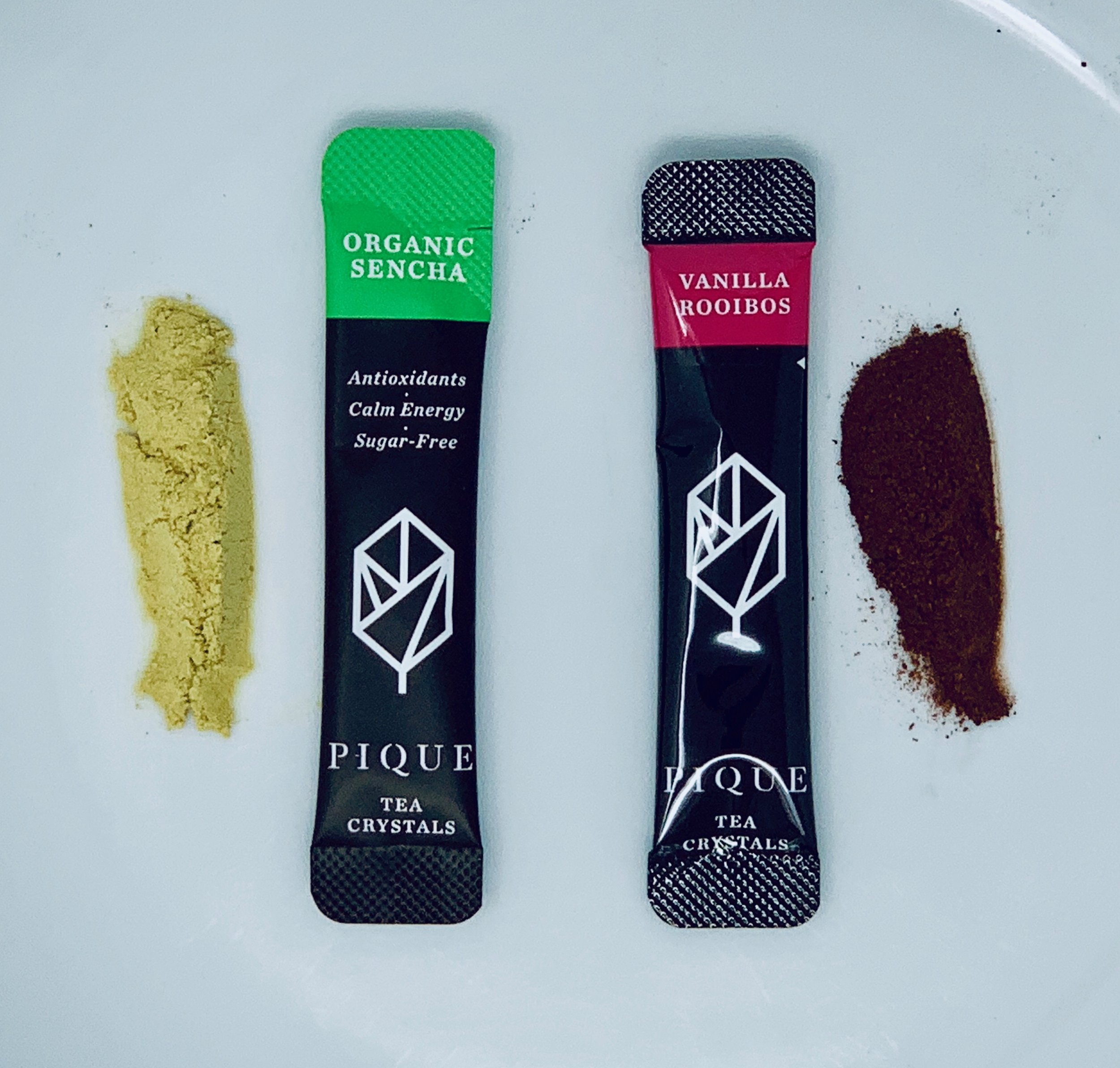My Interest was Piqued with Pique Tea
A few weeks ago, I came across Pique Tea and my curiosity was definitely piqued. What I found most appealing was their attention to quality and purity. According to their website and labeling, Pique tea is screened four times for toxins - pesticides, heavy metals, molds, and radioactive isotopes. As a naturopathic physician who cares about health, the quality of my food is important. And as someone who consumes his fair share of daily matcha, I believe attention should be paid to what potentially hazardous substances might find their way into my bowl, especially after the study recently published on October 22, 2018 in JAMA suggested that people who consumed mostly organic fruits, vegetables, dairy products, meat and other foods had 25% reduction in several cancers compared to adults who never ate organic food. Why should this concern extend to my tea?
While I prefer organic matcha from a ethical, moral and health perspective, several brands I have tasted were lackluster in color, less vibrant and intense, poorly whisked, more bitter and missed any significant umami finish. Needless to say, I was wary. Still, I ordered three teas - sencha, rooibos and matcha. Both the sencha and rooibos arrived quickly, but a mix up in delivery had me waiting an additional week for the matcha, but after tasting the tea that had arrived, my enthusiasm was waning.
Pique Tea uses only the highest quality organic teas that are screened for toxins as mentioned above. Then they use their patented cold brewed crystallization process to convert the tea into crystals to which you simply add water. First their teas are brewed for up to 8 hours at low temperatures to extract their naturally occurring phytonutrients. Next the water is extracted from the brew to form the most potent and nutritionally rich crystals. These are then packaged in the small serving sized packets for quick and easy use, ensuring that you can indeed have your daily cup of tea wherever you go. As stated on their mission page of their website, in today’s fast paced world, not everyone has time to brew loose leaf tea. This is where I had to gasp! Why not? I have three offices - a private practice, an office at my university’s clinic and one on campus. Then of course, I have my home. In each of these places I have a kettle and teaware. I know, I know! I am an exception. For me tea is not about the physical medicinal aspects that are touted all over Pique Teas website. Tea is a meditation. Tea is a ritual. Tea is an art form. While I am in favor of people switching to organic, toxin-free tea as a physical health practice, let’s not overlook taste and the ritual.
That said, a part of me remained curious about these crystals. Even though I could never imagine abandoning loose leaf tea, perhaps, I wondered, having an easy to carry packet of tea could come in handy, for instance, when if traveling. It would be much easier than my habit of scooping sencha and gyokuro into those bleached tea bags, then finding a container in which to put said bags so they don't spill all over my bag (something that has happened on more than one occasion). Okay, I was intrigued… until I tasted the sencha and rooibos.
This is like comparing apples and oranges… or Assam to Gyokuro. They do not compare, and keep in mind, the intent behind them is vastly different. As you can see with the sencha, the crystals are a bright yellow, not a mellow green I anticipated. The taste was far from smooth, with a bit of a grit to it, not surprisingly since I mixed these crystals with warm water. The rooibos was…interesting, but uninspiring to me. One use I could imagine was in cooking and baking, but even though, I do not think they would capture the flavor I desire to infuse in my food.
Needless to say, I was less than hopeful for my matcha, failing to think about the fact that matcha is a powder, not loose leaf tea. Perhaps it would be ground, powdered matcha.
A week later, my shipment arrived and I was…surprised and delighted, so much so that I ordered 2 more boxes.
When I emptied the packet into my chawan, I was surprised by the bright green color. The aroma was fresh and clean, not stale. I chose not to sift it, and that may have contributed to the slightly gritty quality on the tongue. But here’s the thing - this was not at all unpleasant. In the past when a matcha had a graininess, a bitter note followed. Not here. To check this, I tried several brands to compare and taste, and I hardly detected any bitterness. I tend to prefer koicha to usucha tea, so I made both. With minimal water Pique matcha whisked into a rich, thick, smooth tasting (despite the slight graininess) elixir. Whether thin or thick, whisking yielded a thin layer of foam with tiny bubbles, and creamy flavor with a nutty, chocolaty note. And yes, there is an umami finish that remains on my tongue.
I find Pique matcha… well, remarkable. Am I being swayed by the fact I know this is one of the cleanest, purest matchas around? Perhaps. Still I like it and am going to order more. My only wish - sell your matcha in larger, glass, containers to be bit more environmentally conscious!
Thank you Pique Tea for caring about our health!




